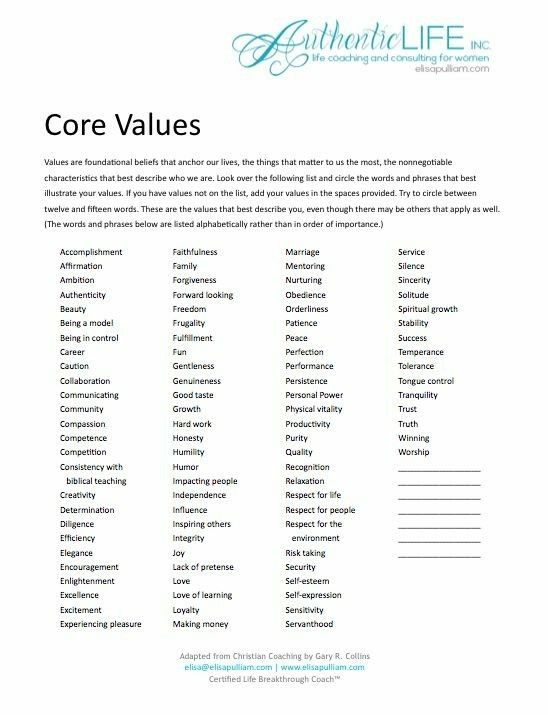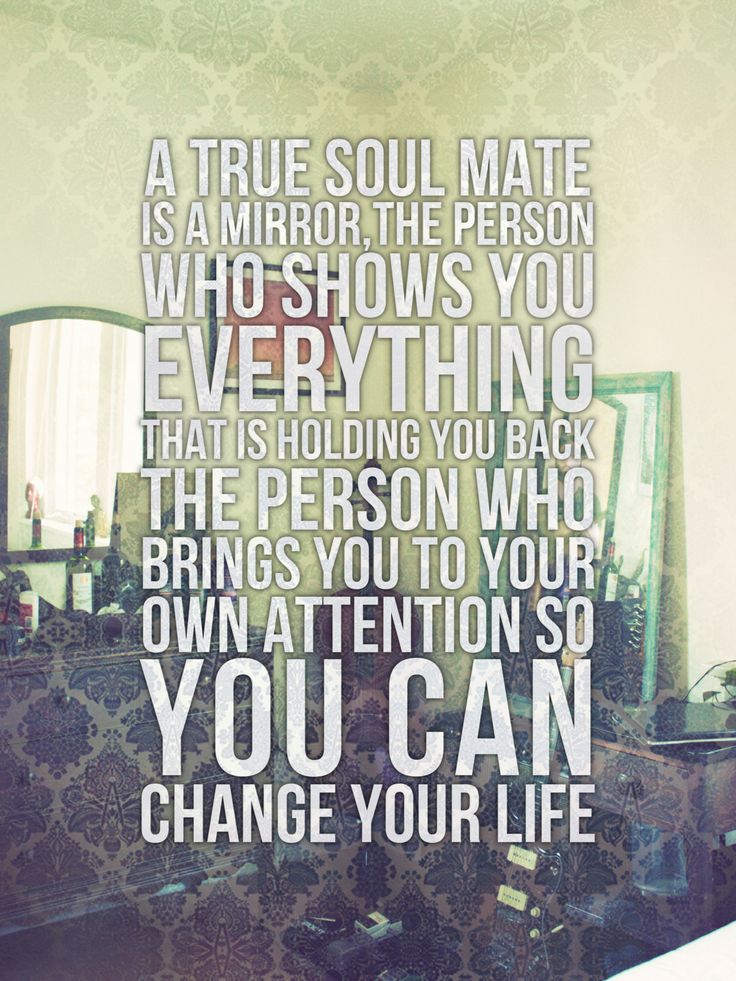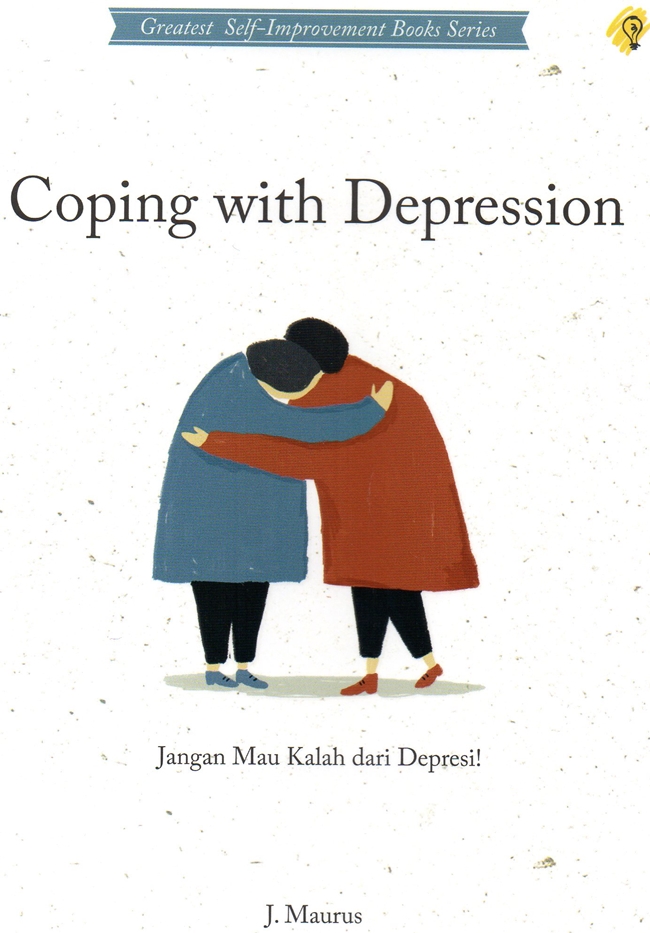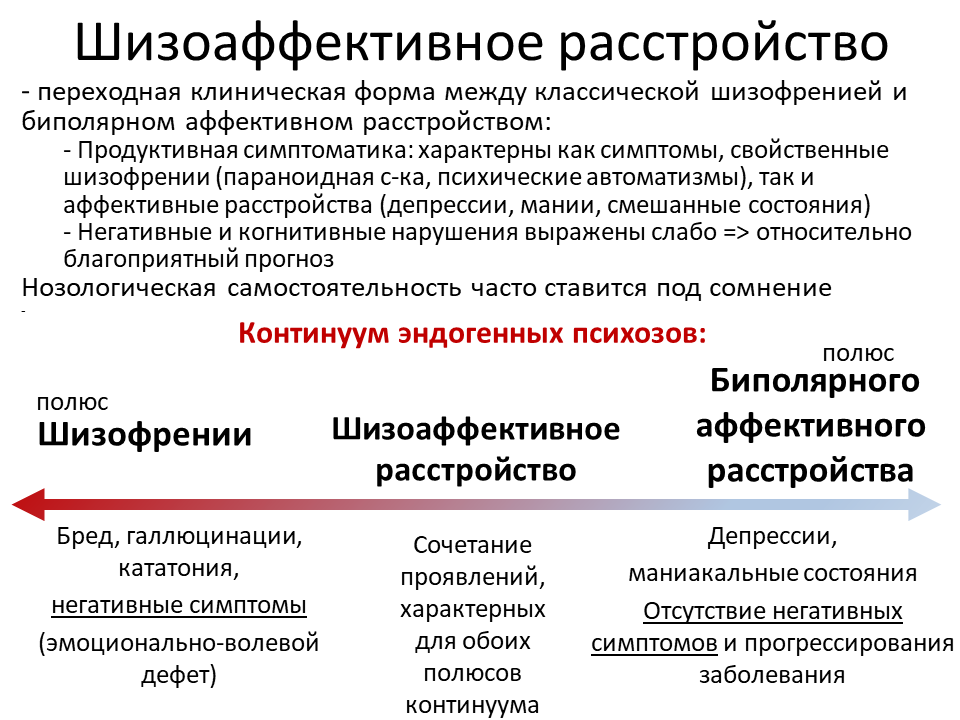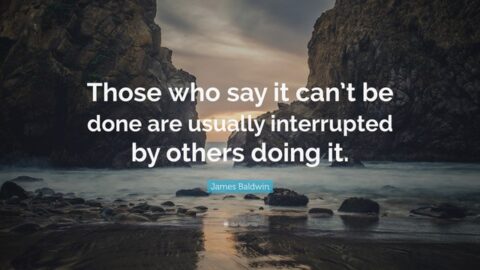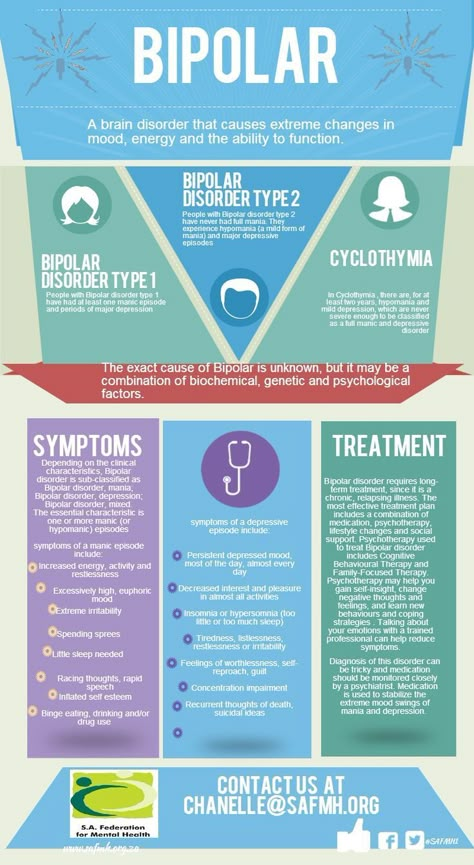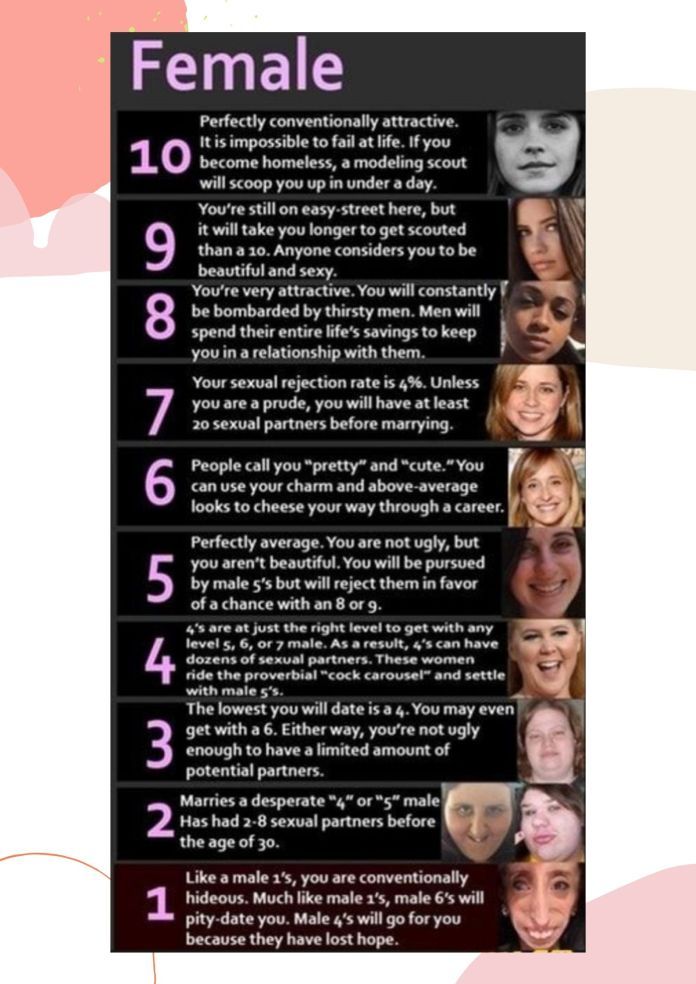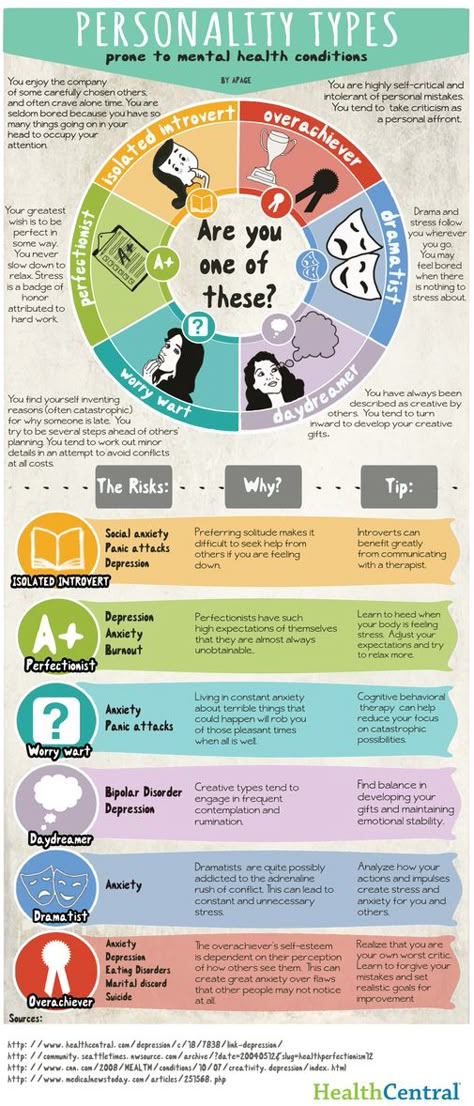Determine core values
6 Ways to Discover and Choose Your Core Values
“What Should I Do?” Everyday Values Dilemmas
You’ve planned to have dinner with your friend on Friday night. On Friday morning, the guy you’ve been crushing on asks you out for the evening. Do you say yes and break the date with your friend?
You just got a raise. Should you bank it for retirement or make your life more comfortable now?
You wanted to get a head start on an important report for work later this evening. But your child has had a tough day and could benefit from your attention. Should you prioritize work or family?
Life presents an endless series of decisions, large and small, that require you to make difficult choices. While many factors are involved, the critical factor in deciding may be your core values. These values tell you what kind of person you are, or want to be, and provide guidelines, or even imperatives, for your actions.
But how do you know what your core values are? This blog post will reveal six ways to discover and choose your core values.
Values: A Definition
First, what is a “value” anyway?
Values “are the principles that give our lives meaning and allow us to persevere through adversity,” according to psychologist Barb Markway and Celia Ampel in The Self-Confidence Workbook. I love both parts of this definition—that values stand for our most meaningful ideals and also that they inspire us to keep going when the going gets tough.
You’ve probably learned many of your values from your parents, your teachers, your religious leaders, and the society around you. You’ve also probably rebelled against some of those values at times or changed your mind as you’ve learned more about yourself and your world. But it can be helpful to decide—or re-decide—the top six to eight values that mean the most to you right now and to have a shorthand label for those principles. That’s where the information below comes in.
Choosing Core Values
If you are not sure about your own core values, or if you would like to clarify which of your values are top priority now, here are six options.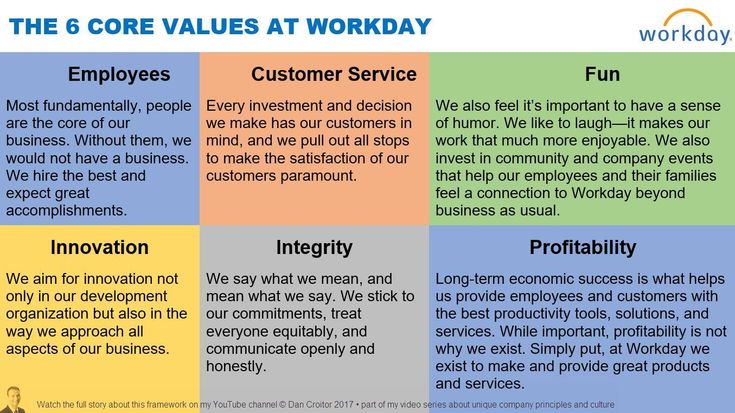
1. Choose your top six to eight values from a wide-ranging list of values.
To do this, you need a good list.
Dr. Russ Harris, the author of numerous books about Acceptance and Commitment Therapy (ACT), has provided such a list in his book, The Confidence Gap. You could also use a similar list from The Confidence Workbook or just use the mini-list that follows, making good use of the “other” option at the end of the list:
Financial Security; Compassion; Health/Fitness; Nature; Accomplishment; Creativity; Dependability; Loyalty; Beauty; Bravery; Gratitude; Love; Connection/Relationships; Learning; Leadership; Survival; Self-Preservation; Security; Adventure; Family; Work; Success; Calm; Freedom; Other___; Other ___.
Now use one of these lists to select your top six to eight values. Yes, you can change your mind. In fact, it's natural to modify some of the values on this list as you face new and challenging situations.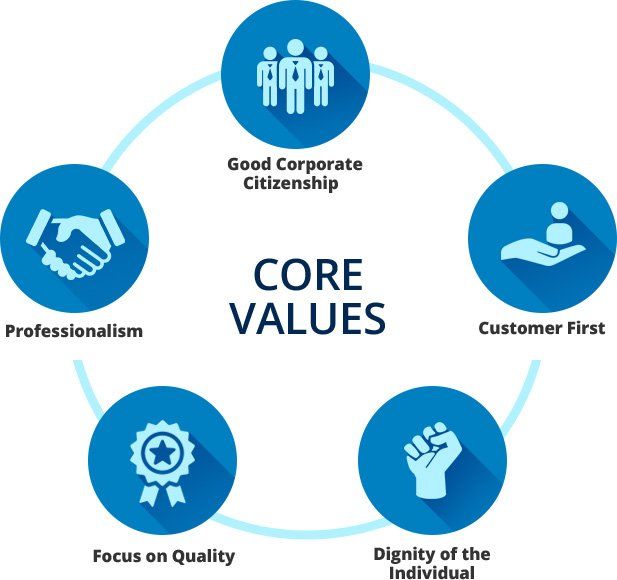 However, other values represent enduring ideals that you would only change under duress.
However, other values represent enduring ideals that you would only change under duress.
I did this activity recently using the Harris list, despite thinking beforehand that I already knew my values pretty well. It turned out to be enormously useful to put specific labels on my vague ideas of my core values. Among other things, I learned I put a high value on many of the “C” values, such as "compassion," "creativity," and "connection." Sometimes when I make a choice, I now say to myself, “Hmm. You decided to write a new blog instead of going out for coffee. That was creativity winning out over connection.”
Note that sometimes your choice is not between right and wrong but between two cherished values, as in my situation above.
2. Think of three to six people you most admire or love. Consider why they are so important to you.
Values can be personified in people that you love and admire. You can use this simple two-step process to uncover the values that you associate with your significant others and role models:
Step 1: Identify and write down six people who are important role models or valued connections for you.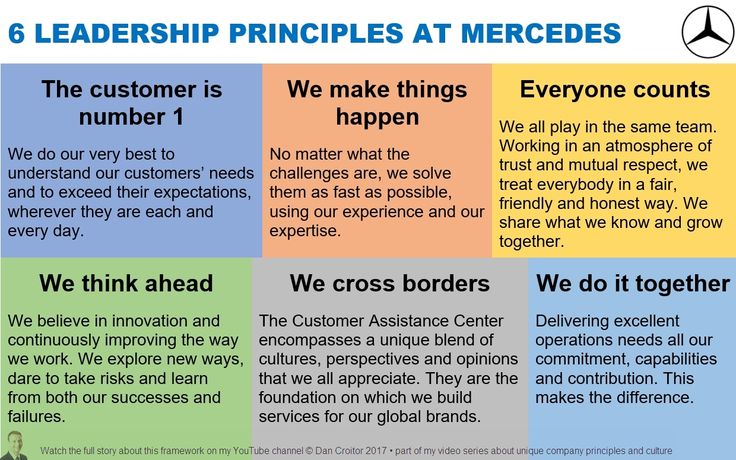 Step 2: Think of the values they embody. For example, your list might include: “my grandfather for his acceptance and love,” “my wife for her honesty,” “my colleague for his listening skills,” and “my friend for his loyalty,” to name a few.
Step 2: Think of the values they embody. For example, your list might include: “my grandfather for his acceptance and love,” “my wife for her honesty,” “my colleague for his listening skills,” and “my friend for his loyalty,” to name a few.
Dr. Steven Hayes, the founder of Acceptance and Commitment Therapy, suggests that you uncover your values by naming your heroes. For example, why do you admire, say, Martin Luther King, Jr.? Is it because he fought for social justice? Is it his commitment to non-violence? His kindness to others? Identifying the specific values embodied by your heroes can inspire you to adopt those values for yourself.
3. See a career counselor.
Your values are a major determinant of career choice, work decisions, and career transitions. For example, you may value “financial security,” “helping,” or “being my own boss (autonomy).” Each of those values might lead you down a different career path. That’s why career counselors have a large toolbox of strategies and inventories (self-report tests with no right answers) including values inventories to help match their clients to a compatible career area.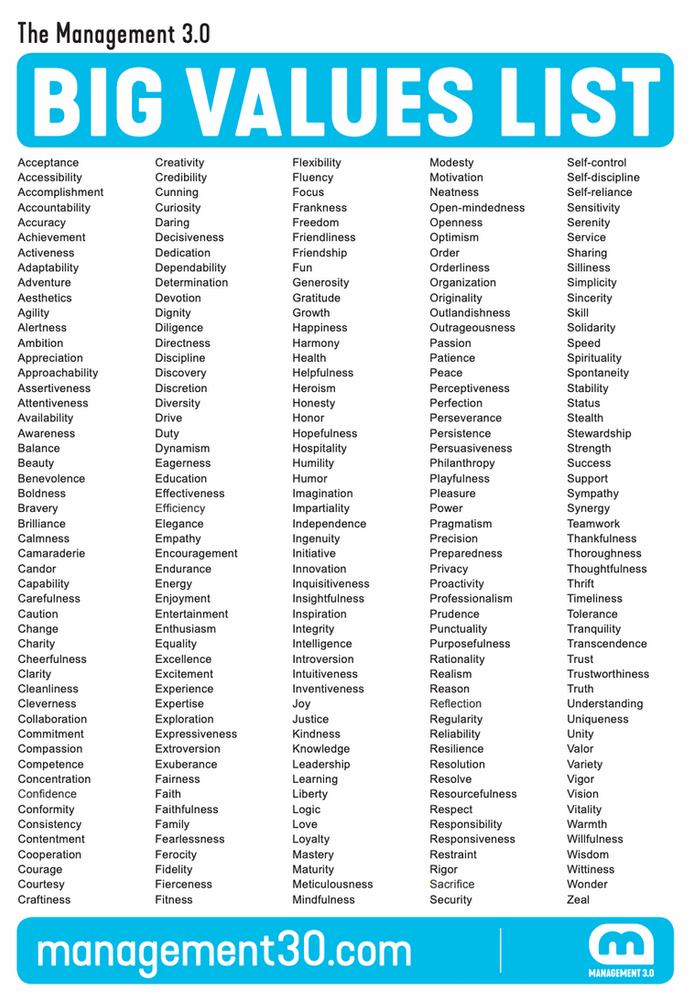
4. Use an online values inventory.
You can find various values inventories online. One free online values inventory is located here. The authors, R. Kelly Crace and Duane Brown, are experts in wellness and career development. Although I’ve never worked with this particular inventory before, I agree with the authors’ idea that clarifying your values can “serve as a blueprint for effective decision-making and optimal functioning.” (The inventory looks so intriguing that I intend to take it myself—it's actually on my list.) By the way, if you are concerned about confidentiality (and I hope you are), the website states that the information you supply will be used for ongoing research, but your name will not be linked to your data.
5. Observe yourself and learn.
As you live your life, be mindful of the choices you make. For several days, consciously put a label on the values behind your key decisions at work and at home. Pay particular attention to whether the values you chose above are reflected in your daily life.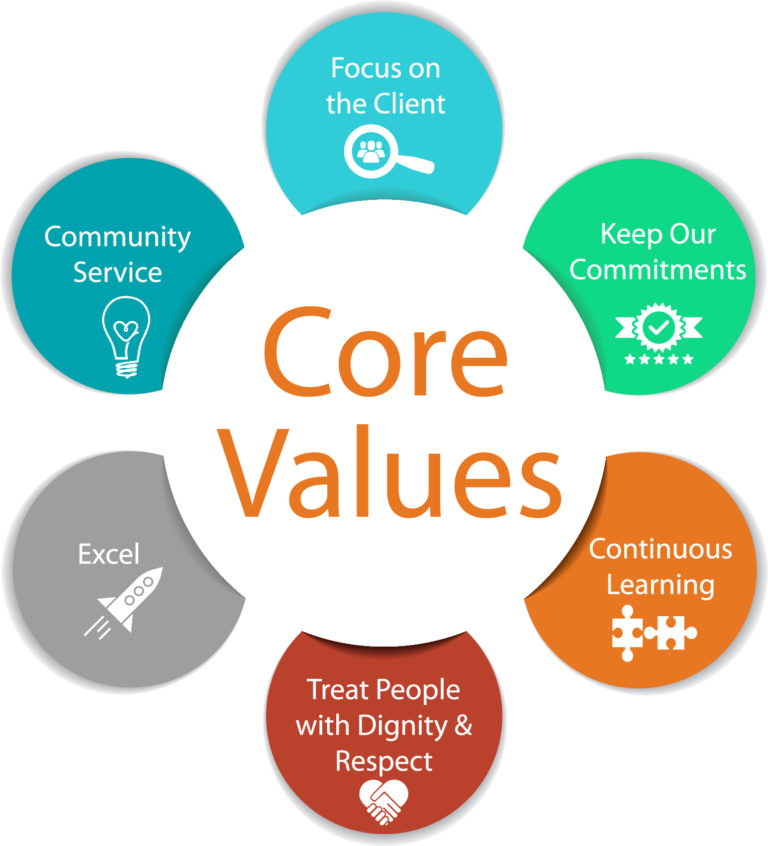 If not, what values are you expressing or living by as you go through your day? Are there patterns? What can you learn about what you want, what you are willing to give up, and what is non-negotiable in your life? If you experience a lot of dissatisfaction with your choices, you may not be living up to your values or you may need to re-evaluate what is most important to you.
If not, what values are you expressing or living by as you go through your day? Are there patterns? What can you learn about what you want, what you are willing to give up, and what is non-negotiable in your life? If you experience a lot of dissatisfaction with your choices, you may not be living up to your values or you may need to re-evaluate what is most important to you.
6. Focus on the bitter and the sweet in your life.
Dr. Hayes suggests that you learn about your values by thinking back to both the sweetest and most painful moments of your life. These moments could direct you to what you care about most. For instance, what were the peak experiences that might reveal key values? If you won an award for teaching, consider that "leadership" or "motivating others" might be significant values. What were the most painful experiences? If you know the pain of being excluded by others, you might realize that "compassion" is one of your primary values.
Difficult Choices and Difficult People
As mentioned above, there are times when two cherished values will be in conflict. Knowing why you are choosing Value 1 instead of Value 2 can be helpful in resolving any inner conflict you may feel. And certain values may rise to the top in particular situations. For example, during an emergency, “survival” may become the value that guides your actions. Values will also shift over time as you fulfill your various goals—for example, once you achieve a comfortable degree of "financial security," that value may recede into the background and other values may take its place.
Sometimes you’ll have to defend against difficult people—such as psychopaths, extreme narcissists, and master manipulators—who seem to be guided by negative values. With such people, it can be a challenge to stick to the positive values highlighted in this blog. Then there are the people who pay lip service to “core values” and “family values,” but whose choices betray their words as just empty rhetoric.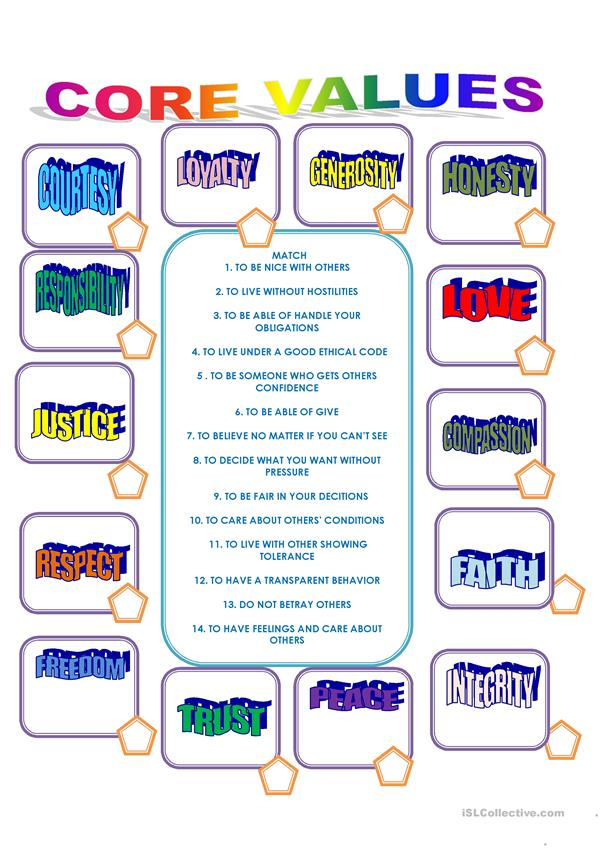
Observing yourself and being honest about what you see might keep the phrase “core values” from becoming a cliché. You can’t be perfect and you’ll often need to compromise, but you can aim for the integrity that a values-driven life can provide. As Dr. Harris sums it up in The Confidence Gap: “True success is living by your values.”
Know Your Values, Know Yourself
“Values” is one of six key elements to knowing who you are, as I explain in this blog. The others are interests, temperament, biorhythms, life goals, and strengths. But of all these, knowing your values is the royal road to self-knowledge because values choices both reveal and build character as you act on them. Your values are even more important than your goals, as Dr. Harris points out, because you might not reach your goals, but you can almost always choose to live by your values.
A Preview of Coming Attractions
This blog has focused chiefly on identifying your values so that you can make better life decisions. But there's much, much more. Although it's hard to believe, knowing your core values can help you reduce stress, communicate with more compassion, increase your self-confidence, and power up your willpower. The next blog will reveal the research behind those benefits and how you can utilize it for yourself.
But there's much, much more. Although it's hard to believe, knowing your core values can help you reduce stress, communicate with more compassion, increase your self-confidence, and power up your willpower. The next blog will reveal the research behind those benefits and how you can utilize it for yourself.
Meanwhile, experiment with living the "values-driven life." Does living by your values increase your sense of satisfaction with yourself and your life?
© Meg Selig, 2018. All rights reserved. For permissions, click here.
7 Steps to Discovering Your Personal Core Values
OVERVIEW: This guide provides detailed step-by-step instructions on how to discover your personal core values and to use personal values in meaningful ways.
______________
As a business coach, I appreciate the power of values.
I’ve noticed that individuals experience greater fulfillment when they live by their values.
And when we don’t honor our values, our mental, emotional, and physical state suffers.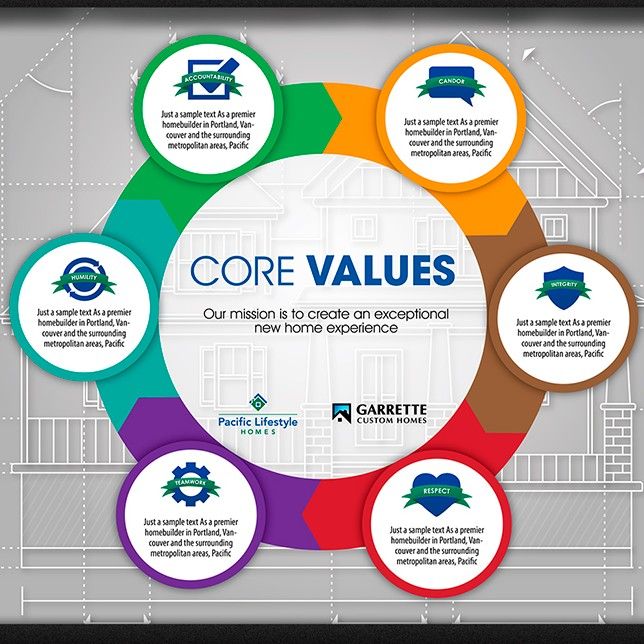 I’ve seen this to be true in my life too.
I’ve seen this to be true in my life too.
What follows is a self-coaching tool to help you discover your personal core values.
Let’s jump in …
Table of Contents
- Why Personal Core Values Are Important
- Knowing Your Personal Values Changes Your Behavior
- Discover Your Personal Core Values
- STEP 1: Start with a Beginner’s Mind
- STEP 2: Create Your List of Personal Values
- 1) Peak Experiences
- 2) Suppressed Values
- 3) Code of Conduct
- STEP 3: Chunk Your Personal Values into Related Groups
- STEP 4: Highlight the Central Theme of Each Value Group
- STEP 5: Determine Your Top Personal Core Values
- STEP 6: Give Your Personal Values Richer Context
- STEP 7: Test the Ecology of Each Value
- Are You Living Your Personal Values?
- How to Use Your Core Values to Make Decisions
- Take the Core Values Workshop
- Recommended Reading
- Discover the Core Values of Your Business
- Read Next
- What Do You Think?
Why Personal Core Values Are Important
Values are a part of us. They highlight what we stand for. They can represent our unique, individual essence.
They highlight what we stand for. They can represent our unique, individual essence.
Values guide our behavior, providing us with a personal code of conduct.
When we honor our personal core values consistently, we experience fulfillment.
When we don’t, we are incongruent and are more likely to escape into bad habits and regress into childish behavior to uplift ourselves.
Knowing Your Personal Values Changes Your Behavior
I still remember going through my first values discovery process when I was 22.
I was attending an intensive 4-day seminar devoted to learning about what motivates people. Personal values were a central theme of the event.
One value that rose to the top of my list was health. Physical health, energy, and vitality were, and still are, important to me.
I spent much of my childhood with various illnesses, and I saw how it affected my development and life experiences in deleterious ways.
I committed to cultivating a strong foundation for my physical health and wellbeing in adulthood.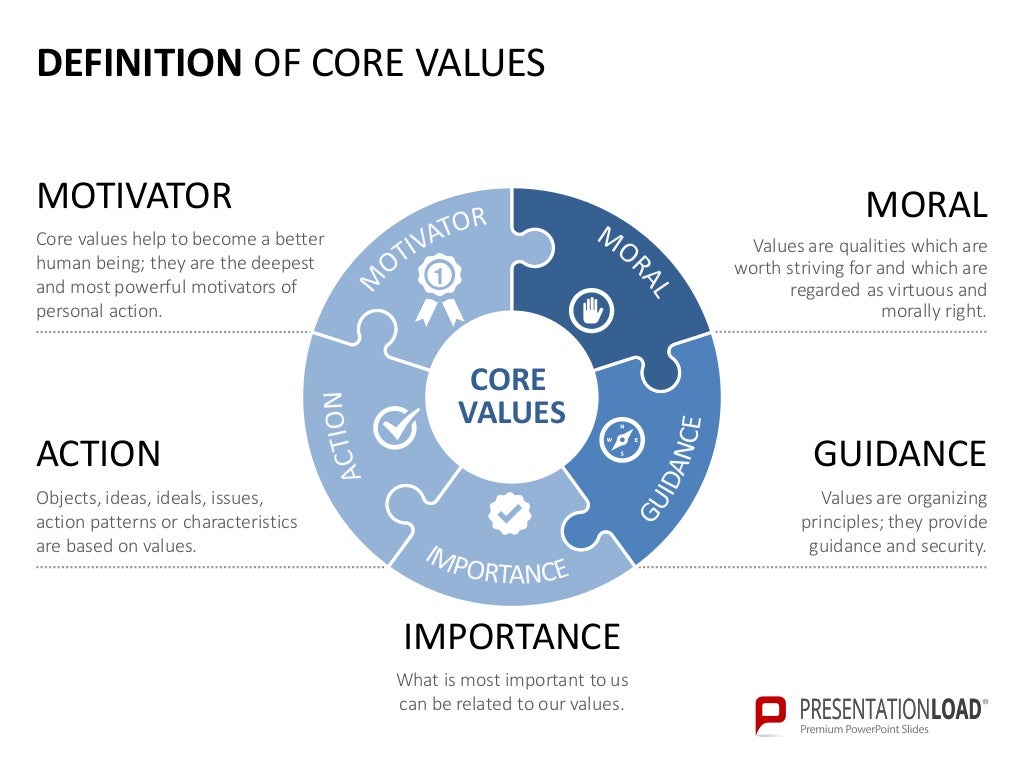
Clarifying this value as a top priority shifted many things in my young life. It influenced what I ate and drank. I now consumed different media and installed different habits.
When you value health, you don’t have to wrestle with managing impulse control as much.
If you know a particular food or activity isn’t good for your body, you don’t want it.
I made a practice of paying attention to how different foods made me feel after I ate them.
If something made me sleepy or drained my energy, I took note.
I sought to create a way of being that supported a healthy, energizing lifestyle.
Many people value comfort. When people value comfort over growth, they are less likely to apply effort to grow. Breaking through resistance to growth is uncomfortable.
Consider what happens when people value comfort over their health. Eating to “feel better” will cause poor eating habits that undermine their health.
Discover Your Personal Core Values
Most of us don’t know our values.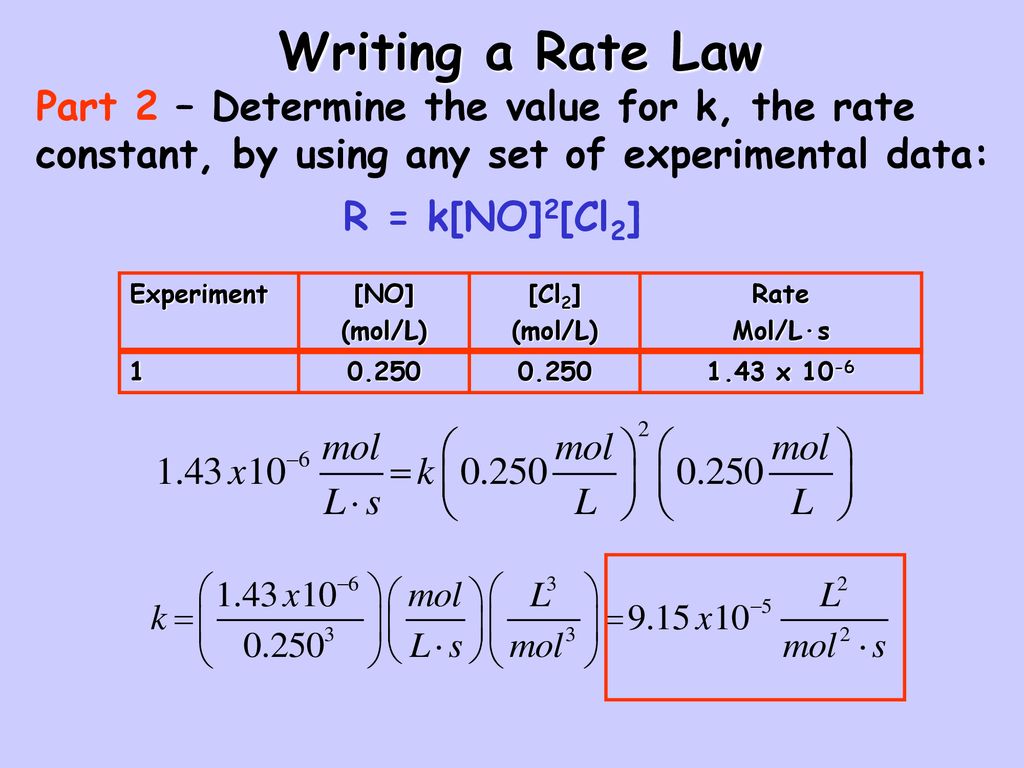 We don’t understand what’s most important to us. Instead, we focus on what our society, culture, and media values.
We don’t understand what’s most important to us. Instead, we focus on what our society, culture, and media values.
Can you articulate your top 5 to 10 values that are most important to you?
Without undergoing a discovery process, it’s challenging to identify your personal core values.
It’s easy to speculate and idealize what you should value. But knowing and accepting what you value takes effort.
While the following process is best done with a qualified coach, you can do it on your own if you apply self-honesty, patience, and determination.
Ready? Take out your journal, a notepad, or a note-taking app. And let’s get started.
Here are 7 steps to creating distinct and meaningful core values that will serve you in every area of your life and work:
STEP 1: Start with a Beginner’s Mind
It’s too easy to presume that we know the answer at the start and to, therefore, never embark on a creative, personal discovery process.
Adopt the mind of a beginner—someone with no preconceived notions of what is—to give you access to inner truths to which your conscious mind is yet unaware.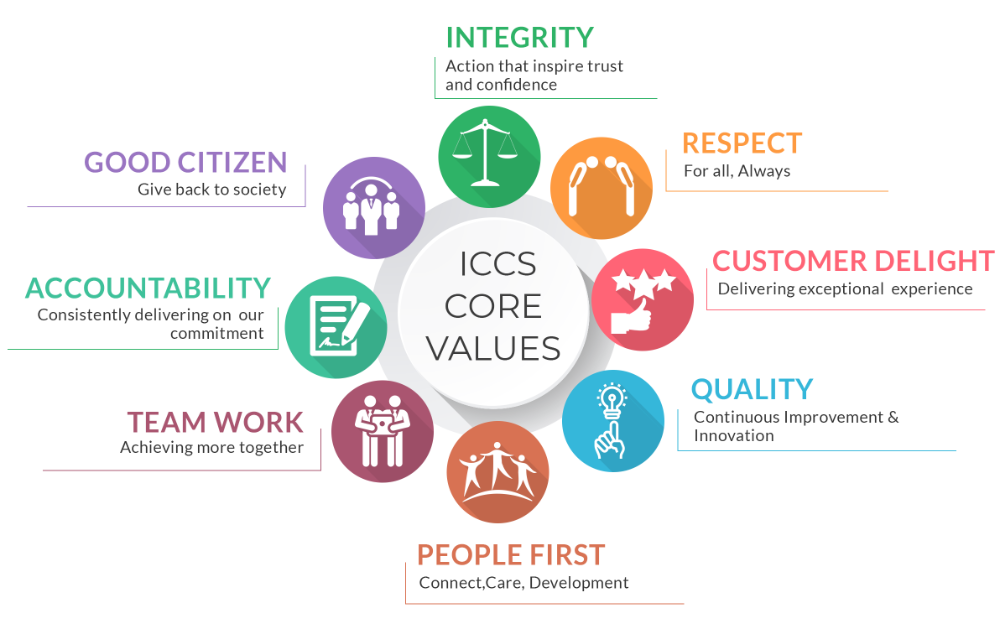
Take a deep breath and empty your mind. Remember that your conscious mind doesn’t have all the answers. Create a space for new insights and revelations to emerge.
Getting in the right mental and emotional state is an essential first step.
I also created a program called The Mastery Method: Activate Your Higher Potential to help individuals enter a state of heightened mental alertness, calm, and centeredness before doing processes like this.
STEP 2: Create Your List of Personal Values
Arriving at a concise and short list of personal values can be a daunting task. You can find lists online with almost 400 values to choose from.
However, I don’t advise using any predetermined lists.
Why? Values aren’t selected; we discover and reveal them. If you start with a list, your conscious mind will test which values appear “better” than others.
That said, if you’re not familiar with working with values, you can scan a list of values to get a sense of your range of options.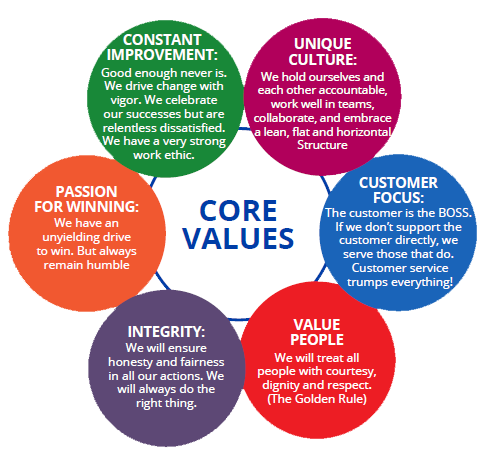
Here’s a list of over 220 core values.
To help you uncover your own personal core values, here are three processes you can try:
1) Peak ExperiencesConsider a meaningful moment—a peak experience that stands out.
What was happening to you?
What was going on?
What values were you honoring at this time?
2) Suppressed ValuesNow, go in the opposite direction; consider a time when you got angry, frustrated, or upset.
What was going on? What were you feeling? Now flip those feelings around.
What value is being suppressed?
3) Code of ConductWhat’s most important in your life? Beyond your basic human needs, what must you have in your life to experience fulfillment?
Creative self-expression? A strong level of health and vitality? A sense of excitement and adventure? Surrounded by beauty? Always learning?
What are the personal values you must honor or a part of you withers?
STEP 3: Chunk Your Personal Values into Related Groups
Combining all the answers from step 2, you now have a master list of personal values.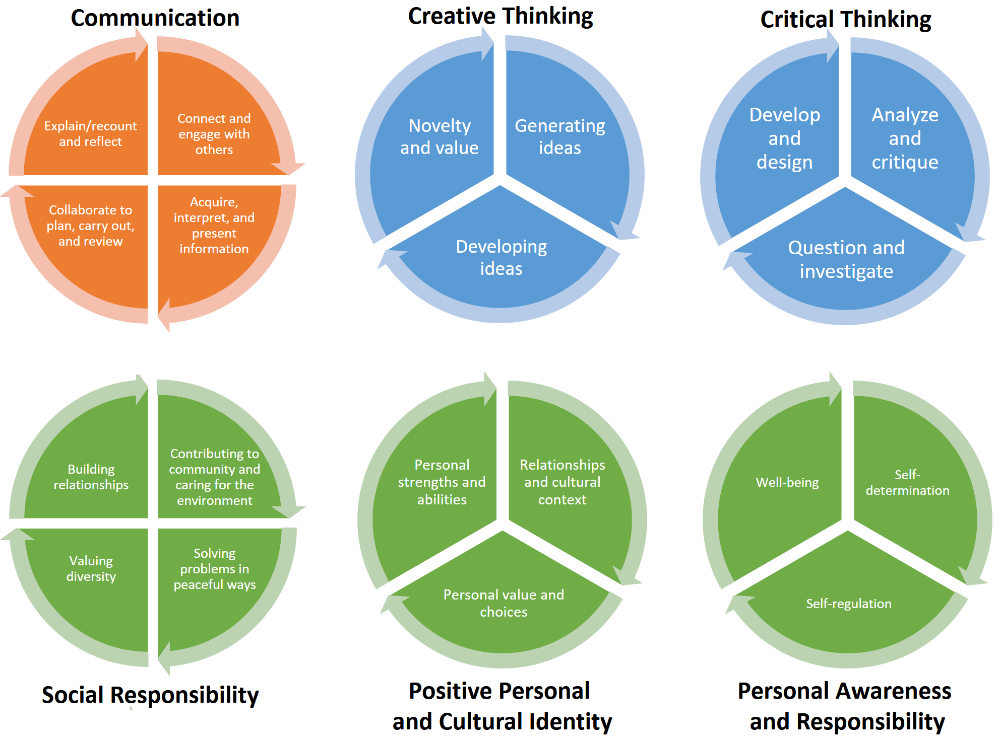 Maybe there are between 20 and 40 values on your list.
Maybe there are between 20 and 40 values on your list.
That’s too many to be actionable.
Your next step is to group these values under related themes.
Values like accountability, responsibility, and timeliness are all related.
Values like learning, growth, and development relate to each other.
Connection, belonging, and intimacy are related too. Group them together.
STEP 4: Highlight the Central Theme of Each Value Group
If you have a group of values that include honesty, transparency, integrity, candor, directness, and truth, select a word that best represents the group.
For example, integrity might work as a central theme for the values I listed.
You can keep the other words in the group in parentheses to give your primary value more context. You’ll use them again in step 6.
STEP 5: Determine Your Top Personal Core Values
Now comes the hardest part. After completing step 4, you still may have a sizable list of values.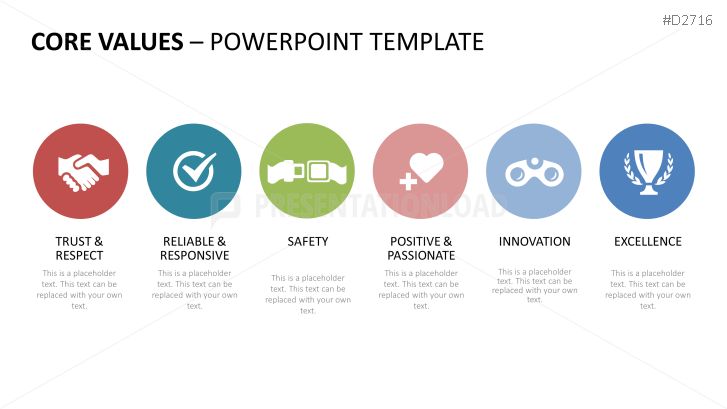 Here are a few questions to help you whittle your list down:
Here are a few questions to help you whittle your list down:
- What values are essential to your life?
- What values represent your primary way of being?
- What values are essential to supporting your inner self?
As a unique individual, you possess certain strengths and weaknesses. Your values matter most to you.
How many core values should you end up with? Too few and you won’t capture all the unique dimensions of your being. Too many and you’ll forget them or won’t take advantage of them.
While the number of core values differs for each person, the magic range seems to be between 5 and 10.
Rank them in the order of importance. This is often the most challenging part.
You may need to do this step in multiple sittings. After doing one round of ranking put it aside and “sleep on it.”
Revisit your ranking the next day and see how it sits with you. Then, go through the process again.
STEP 6: Give Your Personal Values Richer Context
Now, creativity comes into play.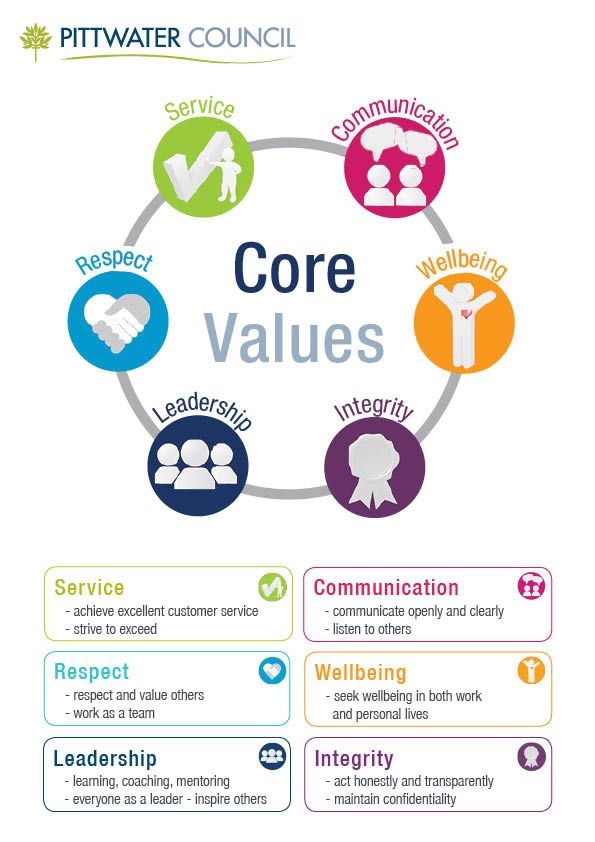
Highlighting values into memorable phrases or sentences helps you articulate the meaning behind each value.
It gives you the opportunity to make the value more emotional and memorable.
Here are a few tips and guidelines for crafting your values statements:
- Use inspiring words and vocabulary. Our brains are quick to delete or ignore the mundane and commonplace.
- Mine for words that evoke and trigger emotional responses. They will be more meaningful and memorable.
- Play to your strengths in crafting your values.
- Make your value statements rich and meaningful to you so they inspire you to uphold them.
You could use other words from the groupings you made in step 3 in your description.
For example, let’s say you’ve identified a core value of health to represent other values, like energy and vitality.
Your values statement might be: “Health: to live with full vitality and energy every day. ”
”
STEP 7: Test the Ecology of Each Value
Once you’ve completed your list of core values, walk away from them and revisit them the next day after a good night’s sleep. Review your list:
- How do they make you feel?
- Do you feel they are consistent with who you are?
- Are they personal to you?
- Do you see any values that feel inconsistent with your identity (as if they belong to someone else, like an authority figure or society) and not you?
- Check your priority ranking. Do you feel like your values are in the proper order of importance?
Nothing is final. Make any tweaks and changes as necessary.
Are You Living Your Personal Values?
Now you have a prioritized list of your top 5 to 10 core values, let’s see how well you’re living them.
From a centered position, assess how well you’re honoring each value by scoring each one on a scale of 1 to 10, where 10 represents optimally living the value.
What’s your level of satisfaction with each value?
Record your score for each. You can set up a table in Excel or an online survey.
You can set up a table in Excel or an online survey.
Date the top of the column. Repeat this exercise once a month or quarter to assess your progress.
If you score below 7 in a particular value, what changes do you need to make? What has to happen for you to further honor this value?
Here’s where self-coaching comes into play. Define your goals. Create a plan. Actualize it.
Check-in with your personal values again. Notice if you feel a difference in your level of fulfillment in life.
How to Use Your Core Values to Make Decisions
Knowing your personal core values and their order of priority is helpful in making difficult decisions.
Start by scoring your values as described above. Then, imagine your life several months or years from now having decided.
For example, what will your new business or a family change your life?
Step into this future picture as much as you can. Have it come alive in your mind.
Now, score your personal values while keeping the vision alive in your mind. Does deciding elevate your values score? Does it cause friction with one of your higher values?
Does deciding elevate your values score? Does it cause friction with one of your higher values?
This process will help bring a new level of clarity to your decision-making process.
Take the Core Values Workshop
The above process is fairly self-contained. but if you’re interested, I do offer a complete, online course on how to discover your core values.
It’s a hands-on, video-based program that guides through the process.
This Values Workshop also shows you, step-by-step, how to tie your values to specific behaviors to help you begin to live your values more fully each day.
Learn more about this course here.
Recommended Reading
Author Stephan R. Covey aptly noted:
“People can’t live with change if there’s not a changeless core inside them. The key to the ability to change is a changeless sense of who you are, what you are about and what you value.”
If you haven’t already, check out Covey’s best-selling classic, The 7 Habits of Highly Effective People (Audiobook). It helps clarify the key behaviors necessary for consistent effectiveness.
It helps clarify the key behaviors necessary for consistent effectiveness.
Discover the Core Values of Your Business
If you’re a business leader or an entrepreneur, be sure to discover your company’s core values to create a thriving, unified culture.
Read NextHow to Determine Your Values in 4 Easy Steps
Review the list of values below: what words evoke an immediate positive emotional response in you? Add them to your list.
1. Responsibility
You take responsibility for your actions and their consequences and respect those who do the same.
2. Mindfulness
You are proud of your conscious attitude to what is happening around and inside you.
3. Harmony
You want everything in your life to be in balance and not one thing dominate the others.
4. Beauty
You always find time to enjoy what you feel is beautiful.
5. Courage
A brave person is not necessarily fearless, but he knows how to make such an impression.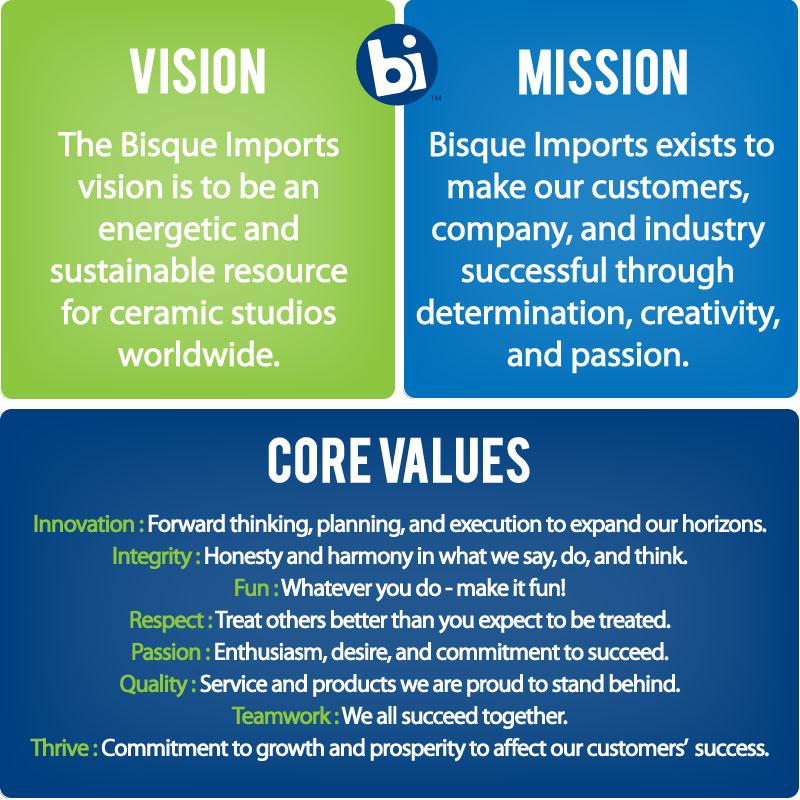
6. Tranquility
Imagine the mirror surface of a lake. This peace, tranquility and serenity are close to you.
7. Purity
It is basically the absence of dirt or things that get dirty, and you work to keep it clean.
8. Intimacy
Strong connection with other people is important to you.
9. Purposefulness
This is the difference between a goal and a dream, it involves decisive action.
10. Compassion
When someone has hurt you, you value compassion and forgiveness more than the opportunity to punish the offender.
11. Confidence
You have an unshakable faith in your own strength and the correctness of your goal, or you have a strong desire to feel this faith.
12. Connection
Without a deep personal connection, you cannot feel attracted to someone.
13. Reasonableness
Expediency and reason are close to you.
14. Pleasure
This is an intellectual or emotional state of satisfaction with a touch of peace.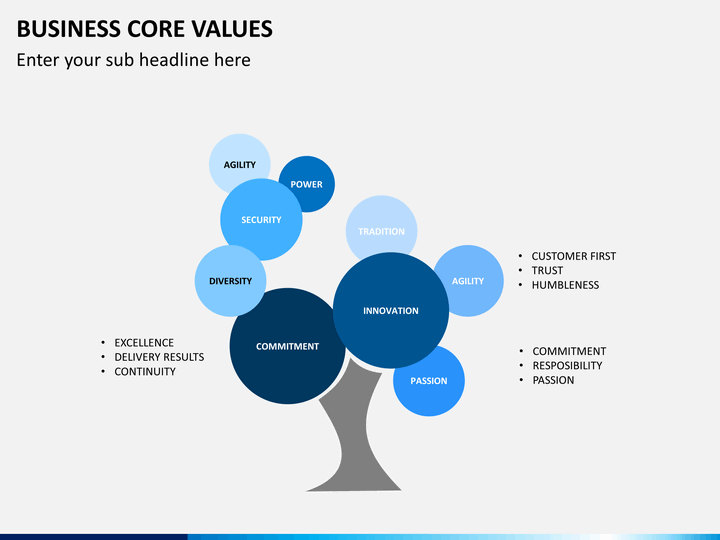
15. Collaboration
You value your ability to work as part of a team to achieve a common goal. nine0003
16. Courage
This is the ability to do what is necessary in spite of fear.
17. Creativity
You use your imagination to create new things and find new solutions to problems.
18. Decisiveness
You value your ability to make decisions quickly and effectively.
19. Certainty
This is clarity and firmness of intention, despite the difficulties in relentless pursuit of the goal.
20. Reliability
Others may expect you to do everything possible to meet your obligations. And you want the same from them.
21. Nobility
You firmly believe that people should be treated with respect as equals.
22. Diligence
You are someone who tries to be diligent and persistent in your work and other matters.
23. Discipline
Think of it as a set of rules and expectations of yourself or others and the means used to enforce them.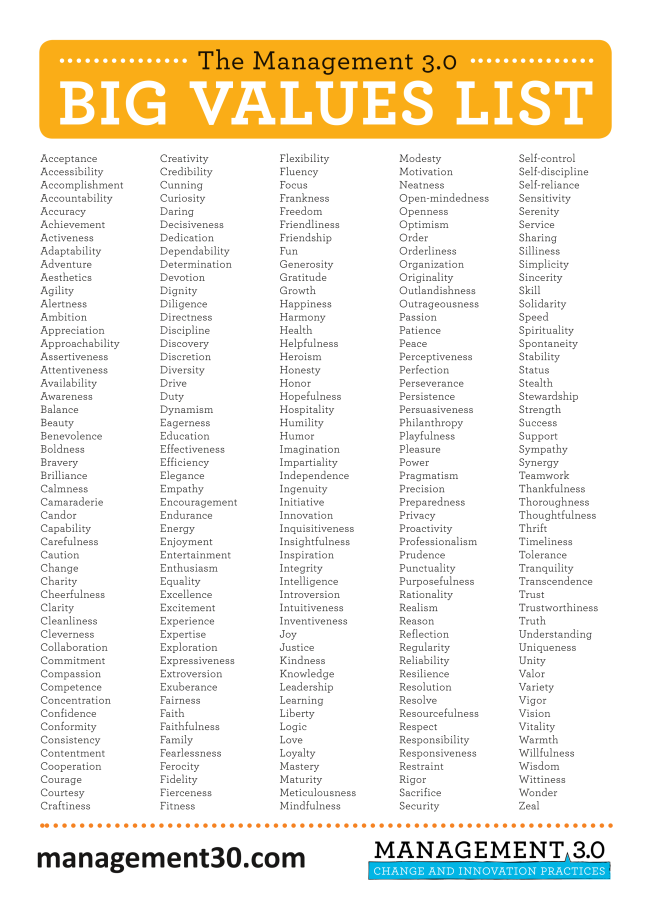 nine0003
nine0003
24. Discovery
This is the ability to discover or learn something new through exploration or experimentation.
25. Diversity
You strive to discover yourself and appreciate the diversity of cultures, experiences and beliefs in the world.
26. Debt
Think about the obligations (moral or legal) that bind you or someone else, and your desire to ensure that these obligations are fulfilled.
27. Education
Think of it as a process of learning through study, exploration, learning, experimentation, or recreation. nine0003
28. Effectiveness
Something is effective if it produces the desired result.
29. Empathy
You feel what others feel, and you probably consider this empathic gift an integral part of your personality.
30. Inspiration
You value your ability to inspire, support, give hope and confidence to others.
31. Excellence
It means to be superior to others, to be outstanding in something, or to have exceptional knowledge or ability.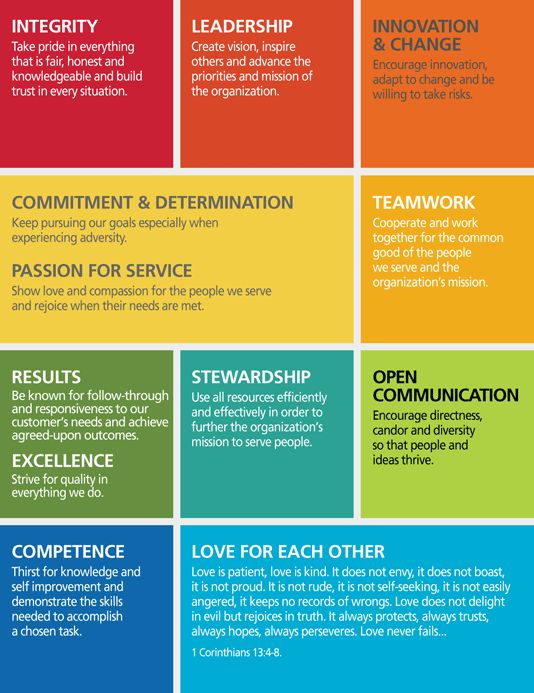 nine0003
nine0003
32. Experience
It can be a feeling encounter with something or the foundation of your superior knowledge and understanding of something.
33. Expertise
You are an expert in your field because you excel in your knowledge or skills
34. Exploration
If you enjoy traveling to or experiencing new places, you have the heart of an explorer.
35. Fairness
With your strong sense of justice, you demand equal pay for the same amount and quality of work. And not only this. nine0003
36. Faith
Faith is total trust in someone or something. It is different from both fanaticism and complacency.
37. Flexibility
You place great value on your ability to adjust and maneuver easily without breaking down—physically, mentally, or emotionally.
38. Concentration
You take pride in your ability to focus on something (or someone) to the exclusion of everything else.
39. Freedom
This is the ability to do what you have to do without the interference of external or internal forces.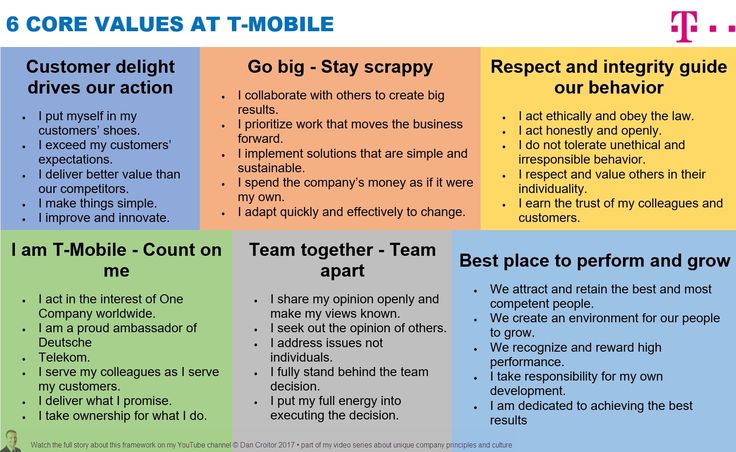 nine0003
nine0003
40. Thrift
You pride yourself on how you manage your finances and how you avoid waste and unnecessary expenses.
41. Cheerfulness
You are always looking for ways to please or entertain others in order to lift them and your own mood.
42. Generosity
You enjoy giving yourself, your time and other resources to people, and you would like to pass this value on to your children.
43. Gratitude
It is vital for you to show appreciation for all the good things in your life. nine0003
44. Personal growth
You invest a significant amount of time and energy in your personal development and the development of others.
45. Happiness
The experience of joy and pleasure, the desire to share these positive emotions with others are your top priorities.
46. Health
You are developing new habits that are in line with a healthy lifestyle. You also realize the value of taking care of yourself.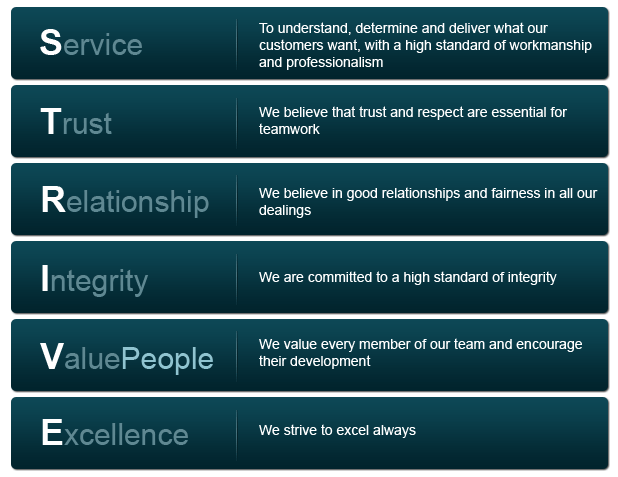
47. Truthfulness
You value truthfulness in others and make sacrifices to develop or maintain this quality in yourself.
48. Hope
You are proud of your optimistic outlook on the future.
49. Humility
Meek people build their self-esteem on what they believe to be true about themselves, and this makes them immune to the opinions of others.
50. Humor
You prioritize your sense of humor and strive to make others laugh.
51. Honesty
Honesty is when your actions and words are consistent with your beliefs.
52. Intimacy
It can refer to close relationships or activities that bring two people closer.
53. Intuition
Sixth Sense Clues is your co-pilot 24/7. Or maybe even the first pilot.
54. Kindness
You treat people the way you would like to be treated, and your kindness attracts others. nine0003
55. Leadership
The motto: “Throw me to the wolves, and I will return at the head of the pack” resonates strongly with you.
56. Learning
You find learning opportunities wherever you go.
57. Love
The need to express and experience love in its entirety is inseparable from your sense of self.
58. Loyalty
You expect people close to you to be as loyal to you as you are to them.
59. Mindfulness
Living in the present moment and enjoying all that is good in it—with intention and gratitude—is vital to you.
60. Moderation
You enjoy all good things in moderation.
61. Motivation
You keep your fire going and love to motivate others.
62. Openness
You leave your eyes, mind and heart open to new people, new knowledge and new experiences.
63. Optimism
You think that optimism makes more sense than pessimism.
64. Organization
You value order - keep everything in its place and keep it clean, without waiting for complete clutter.
65. Originality
You love novelty, adventure and artistic expression.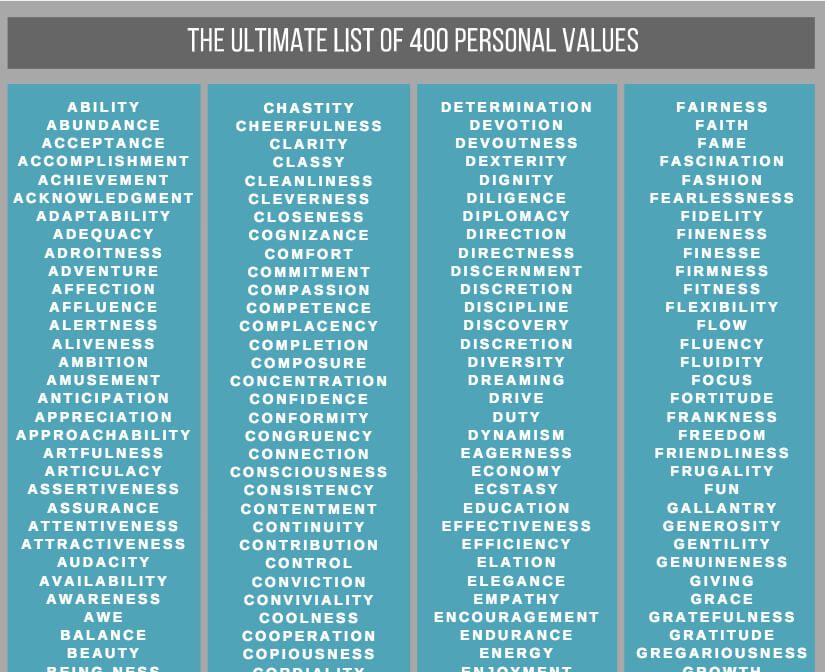 You bring originality to everything you do.
You bring originality to everything you do.
66. Passion
You feel filled and charged with the energy of life, your purpose, your relationships and the work you do. nine0003
67. Peace
Life is too short to be spent in turmoil; May peace, forgiveness and harmony reign within you and in your relationships.
68. Persuasiveness
You value the ability to communicate effectively: to convince others to do something or share your point of view.
69. Professionalism
This is goodwill in a business suit. You treat your clients, colleagues, and others as equals.
70. Logic
Debunking poorly constructed arguments and countering them with effective counterarguments is your favorite pastime.
71. Resilience
Your life motto might be "Take advantage of it" because neither pain nor mistakes will ever make you give up.
72. Respect
Whether it's government or service, you feel obligated to respect everyone.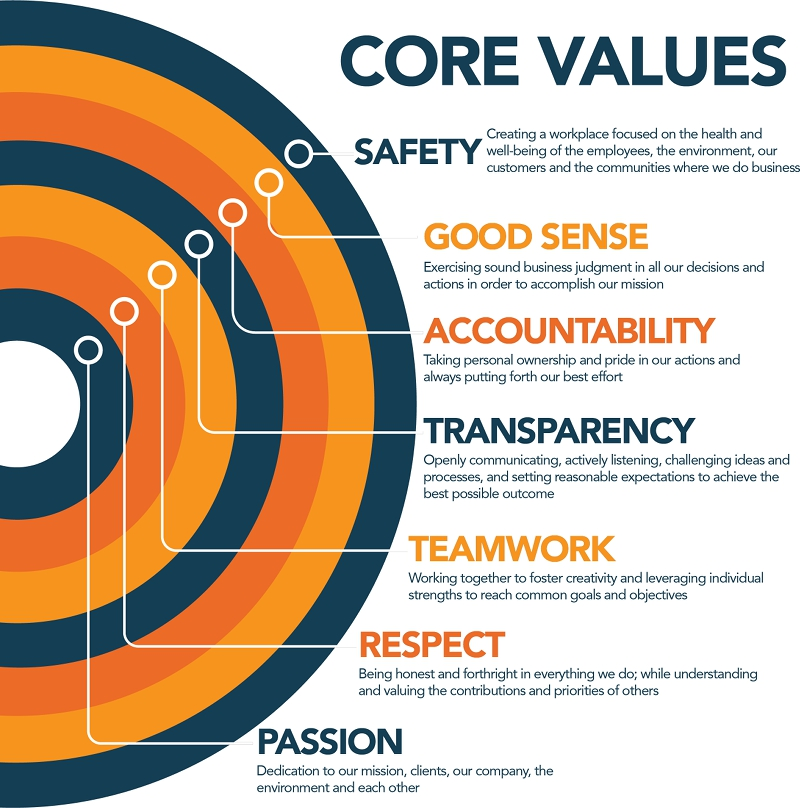
73. Sacrifice
You know that true love involves self-sacrifice - giving up something good for something better or for the sake of serving someone else. nine0003
74. Security
You want to feel safe from the danger or threat of violence against you or those you care about.
75. Sensitivity
Your greater sensitivity to pain comes with a greater sensitivity to beauty and inspiration.
76. Sensuality
Whatever you do, you are looking for an opportunity to simply enjoy the sensations.
77. Serenity
You value your peace of mind so much that you prefer words and actions that help you keep it. nine0003
78. Significance
It's not enough for you to do something. It should have deep personal meaning or contribute to a meaningful goal.
79. Simplicity
You like to simplify everything and exclude from your life that which overloads it or binds you with a million threads.
80.
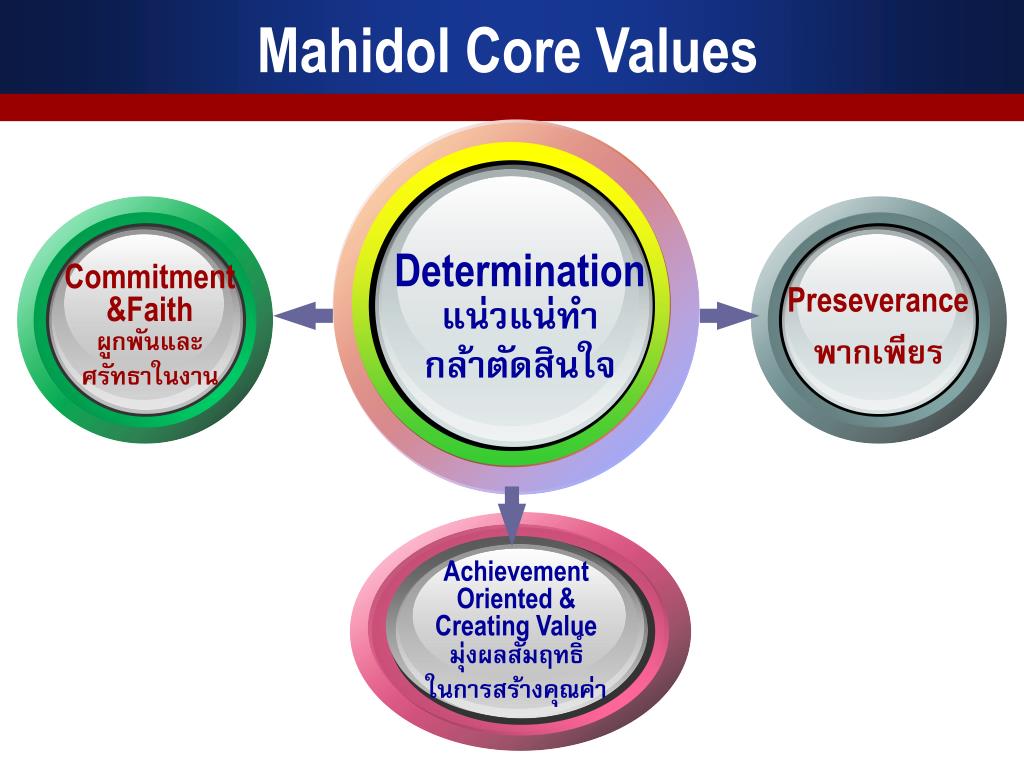 Sincerity
Sincerity You are drawn to sincere people, even if they are not always pleasant. You admire their authenticity and try to imitate it.
81. Spirituality
You believe not only in the existence of spirits, but also in your ability to maintain contact with a higher spiritual principle.
82. Stability
You need to feel that each step you take is on firm, level ground. You hate uncertainty and imbalance and are looking for ways to fix both.
83. Strength
You cultivate physical strength as well as inner toughness, so you recognize and admire this in others.
84. Structure
The best buildings and stories have a solid, solid structure and you appreciate it.
85. Success
This word means that you got the desired results - ideally without doing something that you later regret.
86. Support
You want to feel supported by others and be someone others can count on when needed.
87.
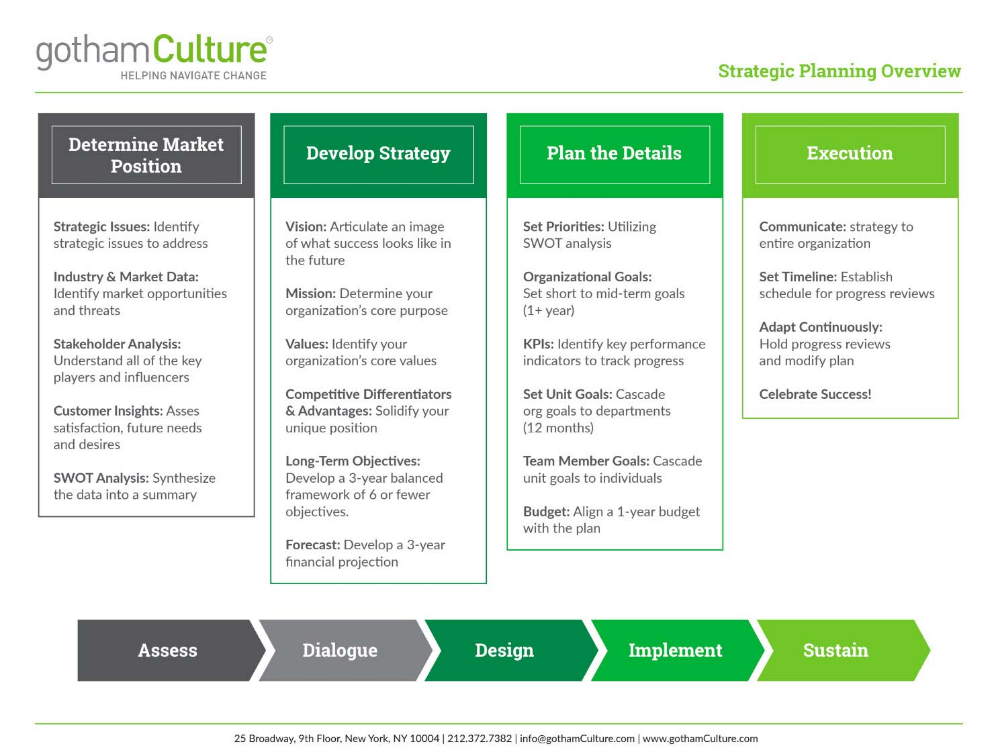 Empathy
Empathy Instead of jumping to judgment, you put yourself in the other person's shoes and try to see the situation from their point of view. nine0003
88. Thoughtfulness
You think about both the gifts you give and your actions towards others. And you appreciate when others do the same.
89. Thrift
You spend as little as possible on everything from food to clothes to your new (to you) used car, regardless of your income.
90. Timeliness
You value other people's time and expect them to do the same by being punctual and completing tasks on time. nine0003
91. Trust
You want people to know that you will keep their secrets and have their backs. And you want to have the same opportunity.
92. Understanding
When you really know someone or something, you comprehend them not only with your mind, but also with your heart.
93. Uniqueness
You admire your uniqueness and enjoy helping others appreciate their own.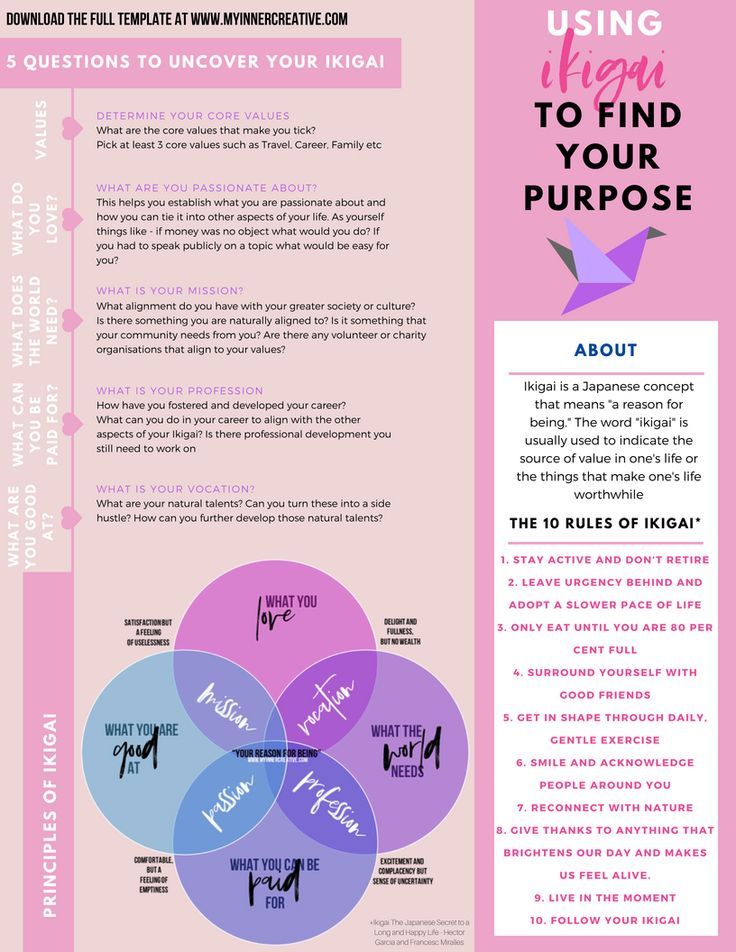
94. Usefulness
You value usefulness in the things that surround you. And also strive to be useful when the situation requires it. nine0003
95. Virtue
You value virtue when you see it in others and work to cultivate it in yourself.
96. Insight
You see what the majority lacks and strive for what the majority considers impossible.
97. Warmth
Warmth and chaos each time win over cold and impeccability.
98. Wealth
Do you wish you never had to wonder, "Do I have enough money?" Wealth means living your life without being limited by money. nine0003
99. Wisdom
A deep understanding of people and things delights you in others, and you strive for it yourself.
100. Worthiness
You feel empowered when someone or something reminds you of your value.
Don't try to copy every word that makes you think, "Well, that's good value." There are no bad values on the list, but you will find some of them more intimate and motivating than others.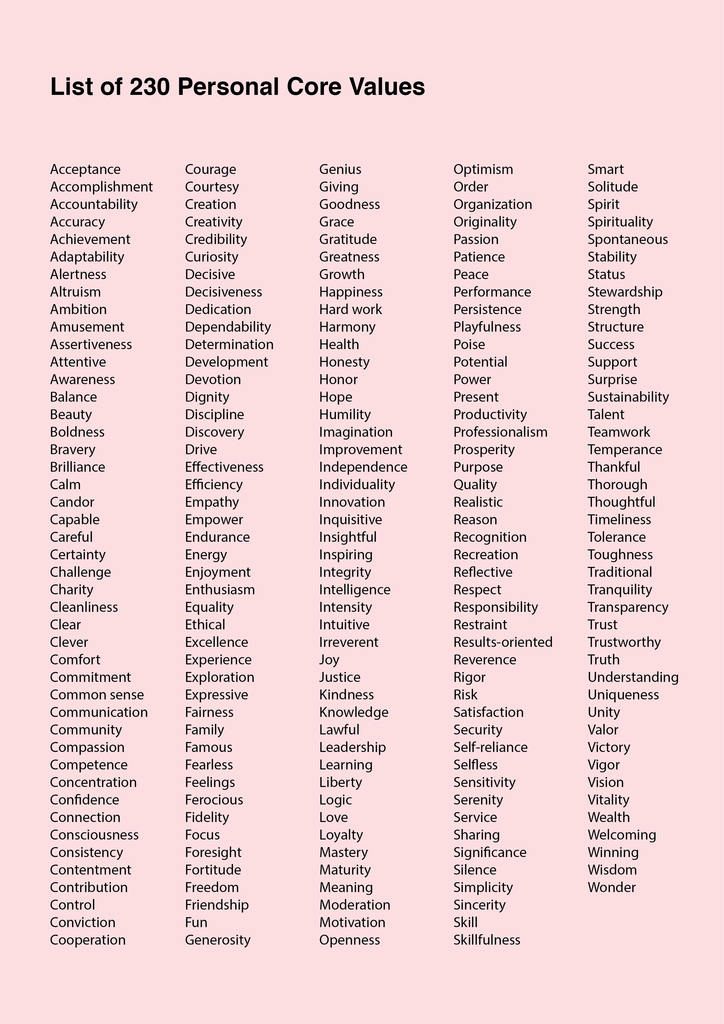 Trust your intuition. nine0003
Trust your intuition. nine0003
The more your life aligns with your core values, the better you will be able to find your purpose, develop in that direction, and contribute in a way that only you can.
How to determine the value of customers? Consulting
How to determine the value of customers?
When we have game sessions on The Seller with sales managers, very often they are confused about the value of customers. It seems that everything is clear and at the same time everything is very unclear. And it’s worth dealing with this - more and more often customers make a choice in favor of those companies and brands that coincide with them in terms of values. nine0003
What are customer values?
If you try to google, this question will most likely lead you to a collection of links about customer value for the company (LTV). This is an interesting and useful indicator that can be calculated using a certain formula.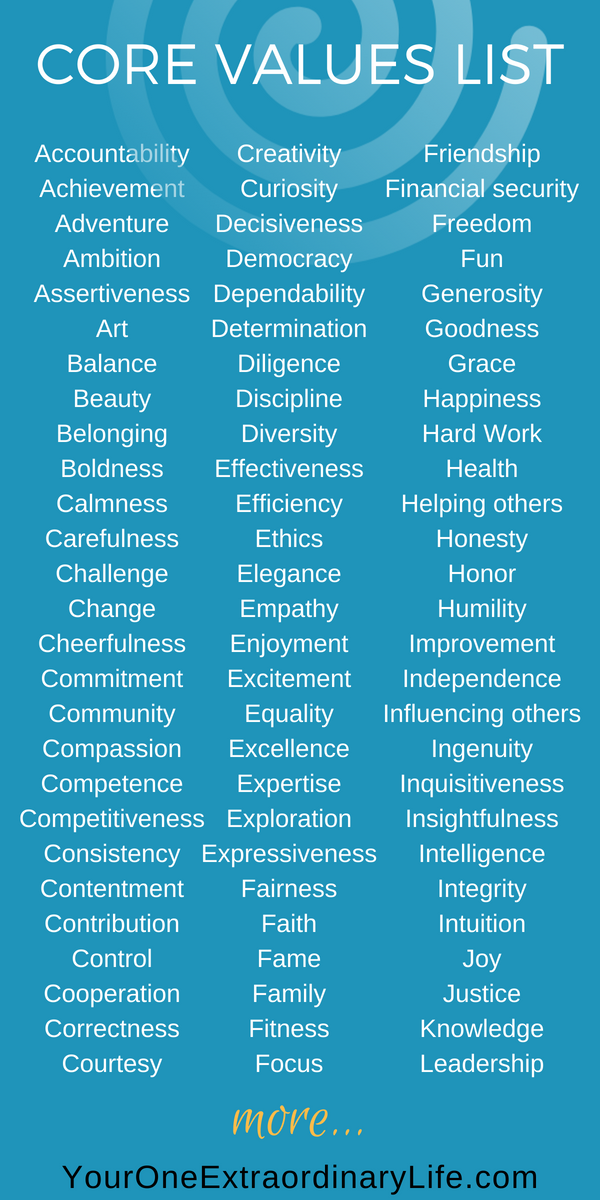 But we are not talking about that now. We are now talking about the client and his values as an individual or company.
But we are not talking about that now. We are now talking about the client and his values as an individual or company.
The values of the client are what is important to him. These are the ideas and principles that he adheres to. It is his characteristics and behavior patterns that motivate the client and determine his decisions. He will feel extremely uncomfortable, uncomfortable if someone or something goes beyond his value system. nine0003
For example, a client values honesty in a relationship. For its part, it adheres to honesty wherever possible. He pays for the services rendered to him on time and expects that the company, in turn, will also fulfill its obligations on time. And quite rightly, he wonders why the seller refuses to fulfill his guarantees or delays resolving the issue.
Another example. Environmental friendliness and reasonable use of resources are important for the client. And the company, opening a new point of sale, hangs a garland of balloons at the entrance and pours champagne into disposable cups for guests.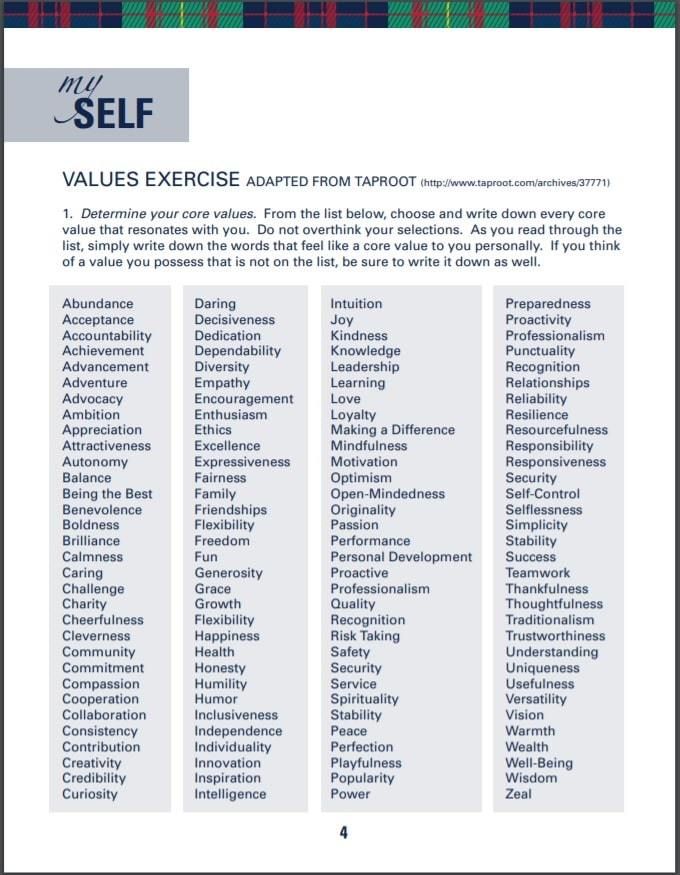 How do you think the client will feel watching all this? Will he buy something in this place? nine0003
How do you think the client will feel watching all this? Will he buy something in this place? nine0003
All people are different. What makes one person happy can make another feel anxious and disconnected. Therefore, it is so important to be able to determine the values of customers and build your communication with them, based on this knowledge.
It's good if your company has a portrait of the target consumer. Moreover, not only at the level of socio-demographic characteristics, but also at the level of values. If it doesn't exist, do your research and make it up. If so, the list of questions below will help you build better communication with your customers. nine0003
What to ask to find out the value of customers?
Use these questions to find out what drives customers' values—the ones that motivate them the most.
-
- What is important / significant / relevant / most valuable to you in your relationship with the company?
- If you have the opportunity to choose from different equivalent options, which one will you choose?
- What is the first thing you pay attention to when interacting with a company? nine0450
- What would you like to change in your relationship with the company?
- Why did you choose our company?
- What actions of the company will you not tolerate under any circumstances?
- On what principles should a company build its relationships with customers?
List of B2C and B2B customer values
The Harvard Business Review has some great B2C and B2B customer value pyramid charts.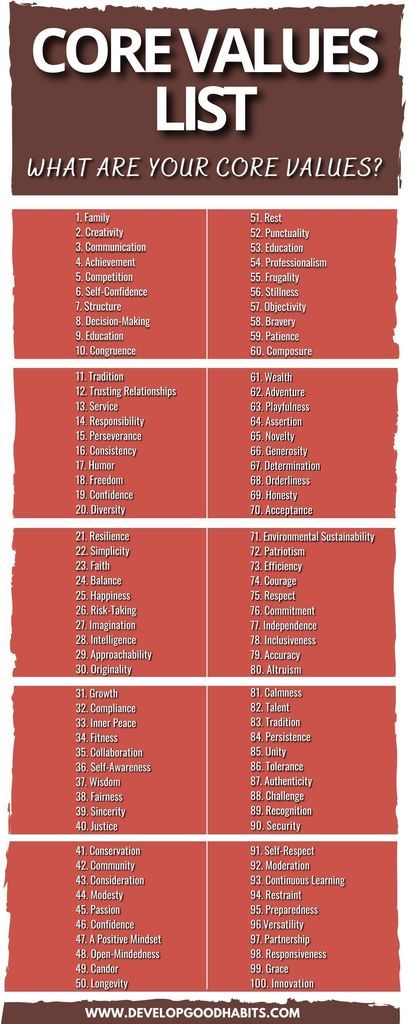 We made a small selection of them. You can always refer to the source through the links and study all the details. nine0003
We made a small selection of them. You can always refer to the source through the links and study all the details. nine0003
| B2C customer value | B2B customer value |
|---|---|
| 1. Functional (variety, cost reduction, avoidance of trouble, simplification, etc.) 2. Emotional (well-being, nostalgia, entertainment, anxiety reduction, ) 3. Life change (motivation, belonging to a group , self-actualization, etc.) 4. Social impact (self-development) | 1. Basic (compliance with laws, reasonable price, compliance with technical requirements, etc.) 2. Functional (innovation, product quality, cost reduction, income increase, etc.) 3. Ease of doing business (flexibility, integration, competence, effort minimization, etc.) 4. Individual (growth and development, anxiety reduction, expansion of business relations, reputational guarantees, etc.) 5. Motivational (social responsibility, hope, vision of the future) |
Use these value lists when creating marketing messages and in personal communications with clients.